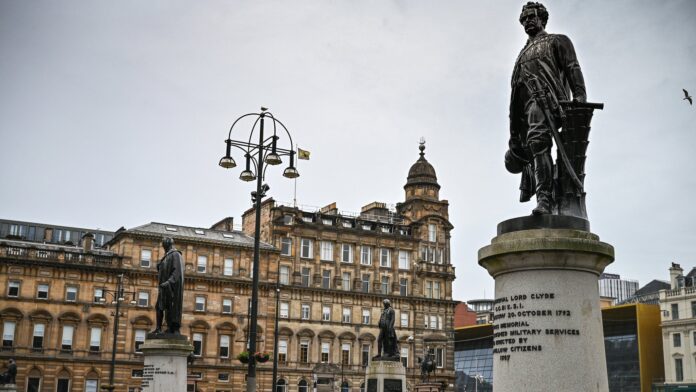Richard Blake grew up with only vague knowledge of his family’s wealth and history. It wasn’t until a flood in the 1990s that he uncovered his ancestors’ troubling involvement in the transatlantic slave trade. His grandmother’s stories of adventure and far-off lands captivated him as a child, but he had no idea of the dark secrets behind the family’s privileges and wealth.
The revelation came when a nearby river flooded, causing water to fill the bank vault where Richard worked. As the vault was cleared, boxes labeled with “Kilgraston” started appearing on his desk. Among the documents, he found a receipt from 1787 for the sale of Kilgraston estate to one of his ancestors. This discovery sparked Richard’s curiosity to uncover how his ancestor, John Grant, had acquired such wealth in Perth.
Through extensive research, Richard learned that John and his brother, Francis, had left Scotland as teenagers in the 1750s. They worked in Nova Scotia, Canada, before eventually settling in Jamaica. Jamaica, a major sugar producer in the British empire, relied heavily on slavery, and many Scottish landowners, including John and Francis Grant, owned estates there.
While managing plantations for absentee landowners, John became Chief Justice of Jamaica, and Francis purchased his own plantation with enslaved people to work it. Richard’s research even hinted at Francis’ possible involvement in the slave trade. The revelations shocked Richard, altering his perception of his heritage and family background.
Dr. Stephen Mullen, a history lecturer, highlighted the enormous wealth brought back to Scotland by individuals like Richard’s ancestors. The cumulative returns from Scottish individuals in the West Indies during that period were equivalent to £894 million in modern values. It became apparent that the Grant family, like many others, received compensation for the people they owned when slavery was abolished in 1833. However, the family’s wealth eventually dissipated, and by 1950, the Grant family line had died out.
Richard believes that if reparations are to be made, they should be directed towards lawmakers rather than individual families like his own. Despite the loss of their wealth, the Grant family’s legacy lives on in Kilgraston House, which was gifted to the nation in 1916 and is now used as a private boarding school.
Efforts to acknowledge Scotland’s exploitative connections to colonialism have grown in recent years. Lisa Williams, the founder of the Edinburgh Caribbean Association, noted that it took years of campaigning for Scottish institutions to recognize their global connections and exploitative past. Richard’s own journey of uncovering his family’s history has led him to write a book titled “Sugar, Slaves and High Society,” delving into his family’s exploits and the moral complexities of their wealth accumulation.
For Richard, the process of exploring his family’s past has been cathartic but has also raised moral questions that continue to trouble him. While he can understand what drove his ancestors to amass wealth, the moral implications of their actions remain deeply unsettling. Sharing his family’s story has become important to Richard, allowing for open discussions about the past and fostering a greater understanding of the dark legacies of the transatlantic slave trade.





